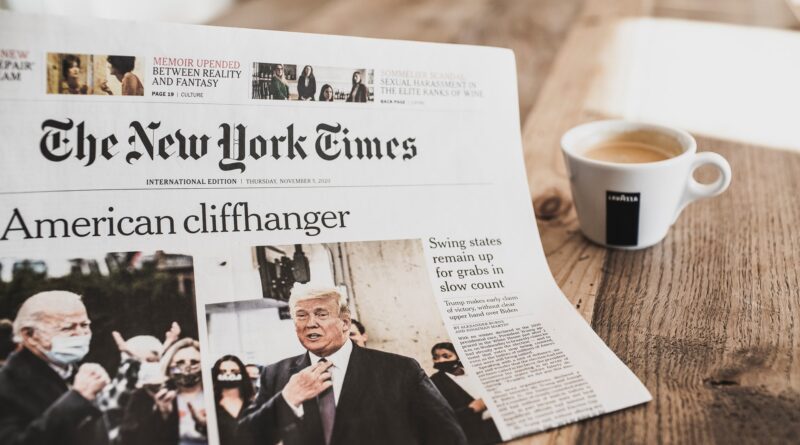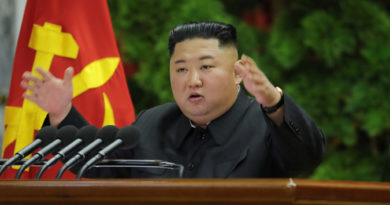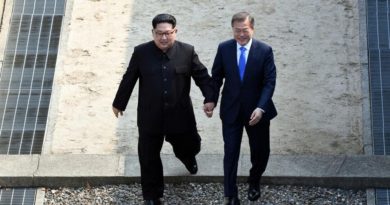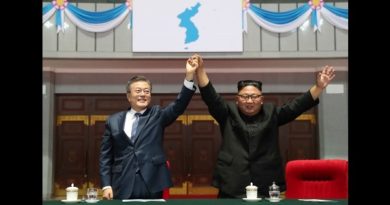Joe Biden Sworn into Office
On 20 January 2021, Joe Biden was sworn into office as the forty-sixth president of the United States. And while he ordered a North Korea policy review before taking office, we still do not have a clear picture of what Biden’s North Korea policy will be. During the debates, Biden referred to Kim Jong Un as a thug and claimed he would not meet with Kim without an agreement for full denuclearization beforehand. However, Biden was not pressed to define what “full denuclearization” means, which leaves room for a step-by-step process similar to what Kim offered Trump at Hanoi. Biden has also repeatedly stated that North Korean strategy has to include US allies in the region as well as China, which would likely result in a return to Obama-era strategic patience.
Biden’s Asia Team
In the run up to the election, the East Asia working group of Biden’s foreign policy team was led by Ely Ratner and Jung H. Park. Ratner — formerly Deputy National Security Advisor to Vice President Biden — was sworn in as Special Assistant to the Secretary of Defense on China on 20 January, but I have not seen anything to indicate that Park has joined the Biden Administration. However, Park’s expertise — Senior Analyst the Central Intelligence Agency (CIA) and Deputy National Intelligence Officer at the Office of the Director of National Intelligence (ODNI) in the Obama Administration — and contribution to the working group will likely inform Biden’s North Korea policy moving forward. Moreover, the Biden Administration has created a new role on the National Security Council (NSC), the Indo-Pacific Coordinator a.k.a Asia Czar, to be filled by former Assistant Secretary of State for East Asian and Pacific Affairs Kurt Campbell.
Campbell’s recent piece in Foreign Affairs indicates that the Biden team will approach Indo-Pacific policy with an emphasis on balance of power politics and strengthening existing regional orders, such as the Asia-Pacific Economic Cooperation (APEC), Association of Southeast Asian Nations (ASEAN), the QUAD, and possibly new ad-hoc arrangements. This aligns with Ratner’s thinking with respect to US-China confrontation and engagement. And, while Park has written about the need for the US to strengthen the sanctions regime against North Korea and press the human rights issue, the current Moon Administration will present a challenge to the Biden Administration’s focus on multilateralism. Further, strengthening the sanctions regime against North Korea will not work if the US allows Chinese and Russian entities to continue skirting sanctions.
South Korea Gets a Vote
Before Joe Biden was sworn into office, South Korea announced that Foreign Minister Kang Kyung Wha, who was rebuked by Kim Yo Jong last month, will be replaced by former Director of the National Security Office Chung Eui Yong. In 2018, Chung, along with his replacement Suh Hoon — former director of the National Intelligence Service, traveled to North Korea before going to Washington to inform Trump that Kim Jong Un was committed to the denuclearization of the Korean Peninsula and accepting of US-ROK military drills. Two summits later, and these statements were revealed to be a lie. Further signals from the Moon Administration indicate that it will push for Biden to return to Trump’s strategy of engagement and relaxed sanctions enforcement against North Korea.
Speaking at his New Year press conference, Moon indicated the Biden Administration “would provide a turning point to newly start US-North Korea dialogue, South-North dialogue, to inherit the achievement that were made under the Trump Administration.” Also, while visiting the US, Foreign Minister Kang met with Democrats to urge their support in resuming US-DPRK talks. Meanwhile, Unification Minister Lee In Young has advised the North to act in a “discreet, wise, and flexible” manner to keep US-DPRK dialogue options open. And, on 21 January, Moon directed his national security and diplomatic corps to engage in a whole of government approach to getting inter-Korean and US-DPRK talks back on track. 2021 is the last year of the Moon Administration, and Moon has made clear that cooperation with North Korea will remain the administration’s top focus.
An Uninterested North Korea
Despite repeated attempts by the Moon Administration to engage the North, Pyongyang has continued to demonstrate its lack of interest in cooperation. In June of 2020, North Korea blew up the inter-Korean liaison office at Kaesong. In September, North Korean sailors killed a South Korean official and set his body on fire. And at the 8th Party Congress earlier this month, North Korea announced the development of new strategic weapons systems to include hypersonic missiles, nuclear powered submarines, electronic weapons, unmanned aerial vehicles, and reconnaissance satellites. Further, Kim Jong Un referred to the US as the “biggest enemy” to North Korea’s “revolutionary development” and indicated that inter-Korean relations were back to pre-Panmunjom Declaration. However, Kim left a window open for the Biden Administration on engagement by stating that North Korea will respond to “power with power and goodwill with goodwill,” and that North Korea will not use nuclear weapons first.
While North Korea has sought to test new administrations in the past, it has been relatively quiet following Biden’s inauguration. The reasons for this are likely twofold. The North Koreans are probably waiting for an official indication of Biden’s North Korea strategy and whether the South Koreans will convince Biden to resume engagement. Also, North Korea is facing internal pressure due to the COVID-19 pandemic and a series of natural disasters last year. The combination of these events are likely exacerbating a food insecurity crisis in the North, which is made worse by the border closure with China. Daily NK reporting suggests that these issues are likely causing anger within the population, which is a vulnerability the US should seek to exploit.
Conclusion
An official Biden Administration strategy for North Korea may still be weeks away, which opens the possibility of a provocation by the North to press the issue. This is made more likely by the fact that relations with China are more consequential for US interests in the region than security concerns over North Korea. Further, South Korea’s inability to accept a more hard line stance on North Korea will constrain the Biden Administration’s range of options. Also, a number of Democrats are in favor of piecemeal deals with North Korea that accept it as a de facto nuclear state. While Biden presented himself as more hawkish on North Korea during the election, Trump’s summits with Kim Jong Un have given him some political cover for pursuing an engagement strategy. Thus, given the Biden Administration’s focus on China, it’s desire to work closely with allies, and the Moon Administration’s singular focus on inter-Korean and US-North dialogue, I believe it is highly likely that the new US administration will attempt to restart working-level negotiations with the North while keeping the previous administration’s strategy of relaxed sanctions enforcement.
Featured Image: Photo by Markus Spiske on Unsplash



